We have treated almost 100,000 patients on our mission to save one million lives.
We have treated almost 100,000 patients on our mission to save one million lives.
- rehab in Greenville, SC
Drug & Alcohol Rehab in Greenville, South Carolina: Comprehensive Guide
Those looking to kickstart their addiction recovery in Greenville, South Carolina, can access many evidence-based treatments in an inpatient or outpatient setting. The best rehabs in Greenville blend science-backed and holistic practices to promote whole body healing from drug or alcohol addiction.
This page outlines what you can expect if you engage in drug or alcohol rehab services in Greenville, whether you require inpatient, outpatient, or dual diagnosis treatment. Read on to learn how to get practical and personalized addiction treatment in South Carolina at RCA.
Inpatient or Residential Rehab in Greenville
Inpatient rehab, including medical detox and residential rehab, is the most intensive level of treatment on ASAM’s continuum of care [1]. Inpatient treatment delivers 24/7 support in a safe and monitored setting. This form of rehab is especially beneficial for those with severe addictions, co-occurring mental health disorders, or anyone who needs supervised medical detox to kickstart their recovery.



Core Elements of Inpatient Rehab
Inpatient drug and alcohol rehab in Greenville differs depending on the facility, but it usually includes these core elements:
- Medically supervised detox: Medical professionals supervise withdrawal symptoms and intervene when required to streamline safety and comfort during detoxification. Detox helps people address physical dependence on drugs, alcohol, or prescription medications [2].
- Initial assessment: A comprehensive initial assessment of physical and mental health, substance use history, and individual circumstances helps inform the development of personalized treatment
- Evidence-based therapies: Structured sessions, conducted in one-to-one and group settings, utilize proven therapies, such as CBT (cognitive behavioral therapy), motivational interviewing, and DBT (dialectical behavior therapy).
- MAT: MAT (medication-assisted treatment) blends FDA-approved medications with talk therapies to manage alcohol and opioid addiction. Medications reduce the intensity of cravings and withdrawal symptoms and promote ongoing abstinence.
- Holistic practices: Most reputable inpatient rehabs in Greenville combine evidence- based treatments with holistic practices like mindfulness, creative expression, stress management, and nutritional guidance to encourage whole-body recovery from drug or alcohol
- Family education and coaching: Addiction impacts the whole Involving family members in the treatment process helps conflict management and communication and create an atmosphere at home conducive to long-term recovery.
Outpatient Rehab Programs in Greenville
Not everyone needs residential rehab. Outpatient programs in Greenville provide a flexible and affordable pathway to recovery, enabling people to meet their everyday commitments while kickstarting their recovery from drug or alcohol addiction.
Greenville residents can access many types of outpatient programs, including:
PHPs (partial hospitalization programs)
PHPs bridge the gap between outpatient and inpatient rehab, usually involving:
- Therapy five days of the week
- Sessions last between four and six hours.
- Emotional and clinical care without an overnight stay.
- Similar treatments are offered at residential rehab centers.
IOPs (intensive outpatient programs)
Intensive outpatient programs can work as standalone options or when stepping down from inpatient rehab or PHP, IOP usually includes:
- Programming three days a week
- Therapy sessions lasting between three to five hours
- Group therapy and one-to-one counseling
- Relapse management and coping strategies
Virtual Rehab Services
Since the 2020 pandemic, virtual rehab has gained popularity in Greenville, like elsewhere in the United States. Virtual treatment offers:
Remote access to addiction treatment.
- Flexible schedules to fit around everyday
- Easy access for those with transportation
- Similar outcomes to in-person therapy for many [3]


Is the Full Continuum of Care Necessary?
Research shows that more extended engagement in treatment typically delivers superior outcomes [4]. The full continuum of care involves gradually moving from high-intensity to low- intensity levels of treatment, providing ongoing support throughout a person’s recovery journey.
These are some of the core benefits of the full continuum of care:
- Gradual transition: Stepping down through diminishing levels of care enables people to practice the skills learned in recovery with the appropriate support, helping them to progress more confidently.
- More prolonged support: Ongoing engagement in treatment keeps accountability and oversight uppermost during the challenging early phase of recovery.
- Individualized progression: Treatment intensity can be adjusted according to individual needs and recovery goals, with additional support provided as needed.
- Robust skills development: Every level on the continuum of care consolidates the work done previously, enabling people to master core tools and techniques for recovery.
Not everyone needs the full continuum of care, but most people find that a graduated approach to treatment provides the proper support as they move from addiction to ongoing recovery. The most appropriate pathway is established during an initial clinical assessment.
Community-Based Support and Local Resources
Sustained recovery from addiction involves more than completing an inpatient or outpatient treatment program. Greenville has many community resources to provide continuing support for those at all stages of their recovery journeys.
Local Peer Support Groups
Peer support groups in Greenville offer encouragement, practical guidance, and connection with people who have personal experience of addiction recovery. These include:
- 12-step meetings: NA (Narcotics Anonymous) and AA (Alcoholics Anonymous) hold meetings throughout Greenville.
- SMART Recovery: This science-based program also meets regularly. It is a non-12-step support group that focuses on self-empowerment through cognitive-behavioral techniques.
- Recovery Dharma and Refuge Recovery: Both programs operate on the principles of Buddhism, using meditation and mindfulness to support recovery.
- Gender-specific groups: Men for Sobriety and Women for Sobriety offer gender- specific meetings for those battling any type of addiction.
- Family support groups: Nar-Anon, Al-Anon, and Learn to Cope offer many resources for the family members of people dealing with addiction.
Community Organizations
There are recovery community centers in Greenville with the following options:
- Coaching for recovery
- Recreational and social activities
- Advocacy for recovery
- Employment, housing, and education resources
Support Services
Extra support for residents of Greenville may include:
- Sober living
- Recovery coaching
- Access to healthcare programs

Substance Use: Greenville Statistics
Substance abuse is a healthcare challenge in South Carolina, like in all U.S. states. Recent epidemiological data show that [5]:
The state has experienced an alarming acceleration in substance-related mortality. 2024 data show that 37.4 in 10,000 residents died of an opioid-related overdose, an increase of more than 5% from the previous year.
The prevalence of opioid-related fatalities suggests:
- Prescription medication misuse patterns are unique to the region
- Growing synthetic opioid availability in local communities
- Potential gaps in overdose prevention infrastructure
- Limited access to medication-assisted treatment in rural areas
Why Choose RCA?
If you’re thinking of kickstarting your recovery in Greenville but are unsure how to begin, RCA has many advantages.
Our Approach
At Recovery Centers of America, we utilize evidence-based treatments to address all aspects of addiction with personalized care plans that blend science-backed and holistic interventions.
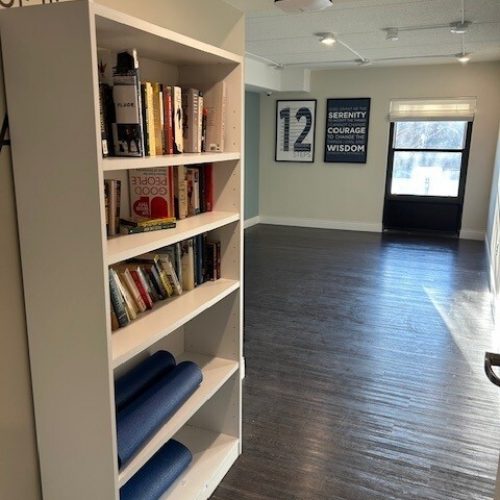
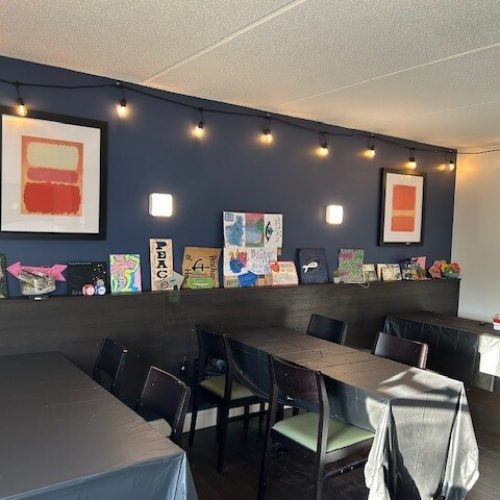
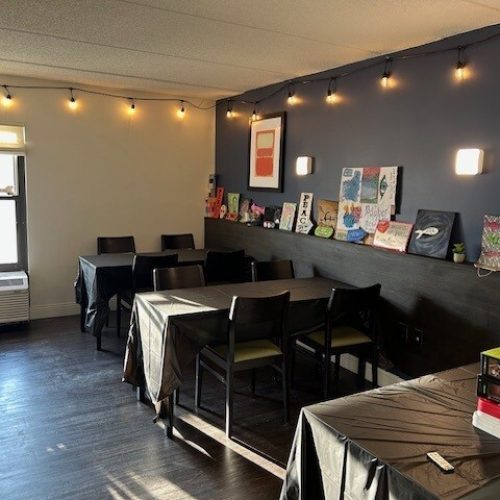
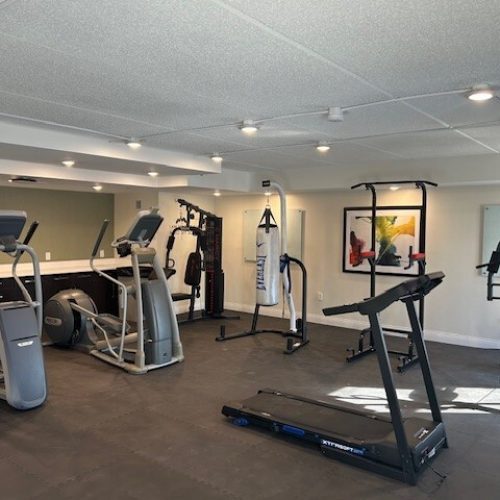
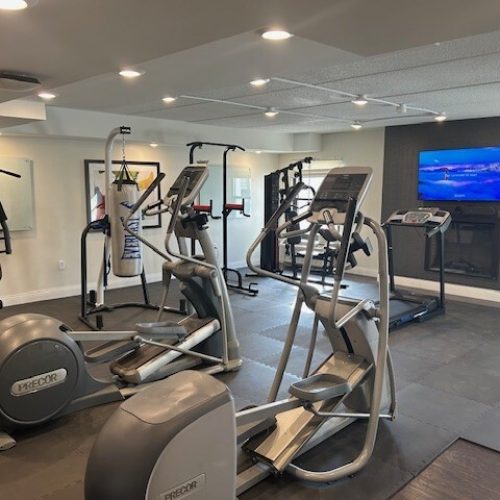
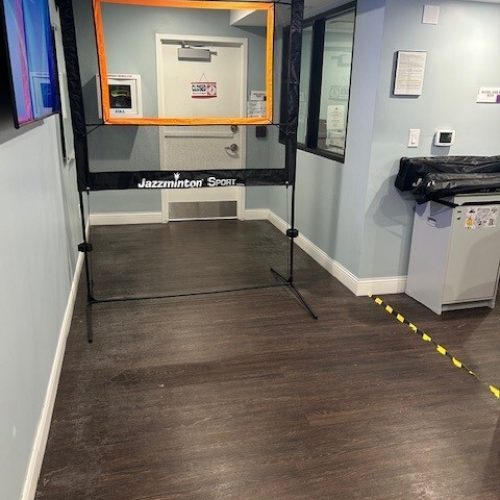
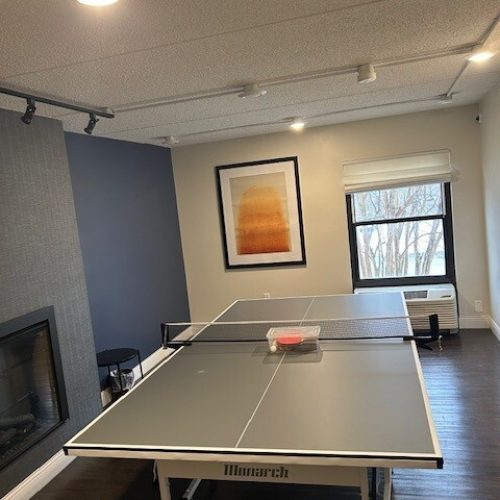
Specialized Pathways to Recovery
RCA offers three pathways to meet people where they are on their recovery journey:
- Foundations of Recovery: For anyone new to addiction recovery, this pathway educates and introduces recovery concepts while setting the stage for long-term sobriety.
- Fresh Start: Those previously engaged in treatment can consolidate their existing skills and knowledge while isolating and addressing elements driving relapse.
- Balance: Integrated and coordinated dual diagnosis for those with co-occurring disorders.
Trauma-Informed Treatment
Many addictions are rooted in trauma and need specialized therapies.
- Assessment processes: Trauma-informed screening and assessment protocols.
- Treatment modalities: Trauma-informed therapies like Seeking Safety.
- Environmental factors: Treatment in a safe space.
- Integration approach: Addresses trauma and substance use concurrently.
Evidence-Based Treatments
At RCA, we combine scientifically validated therapies with holistic practices to promote whole body healing from addiction.
CBT (cognitive behavioral therapy)
CBT is a first-line treatment for addiction and mental health issues. It helps people identify and change negative patterns of thinking and behaving.
- Core elements: Examining automatic thoughts, behavioral activation, and developing adaptive coping techniques.
- Research support: Many studies show that CBT is highly effective for treating addictions [6].
- Implementation: CBT is delivered in both individual and group settings.
- Benefits: Helps individuals develop skills that are beneficial in ongoing recovery.
DBT (dialectical behavior therapy)
DBT integrates change-oriented techniques with acceptance strategies:
- Core elements: Mindfulness, distress tolerance, interpersonal effectiveness, and emotion regulation techniques.
- Therapeutic value: Beneficial for those with a history of trauma or difficulties with emotion regulation.
- Implementation: Groups for skills development and one-to-one therapy sessions.
- Benefits: Helps people reduce impulsive behaviors and improve emotional management.
Motivational Interviewing
This form of motivational therapy helps individuals become less ambivalent about making behavioral changes through the following:
- Core principles: Developing discrepancy, building self-efficacy, rolling with resistance, and expressing empathy.
- Clinical application: Interventions integrated with other therapies.
- Effectiveness: Particularly beneficial during the early phase of recovery, improving treatment retention and engagement.
- Methodology: Avoids confrontation in favor of collaboration.
Family Education and Coaching
Involving family members in the addiction treatment process dramatically improves outcomes through:
- Education: Giving families information about the neurobiological basis of addiction shifts understanding to a more informed medical perspective.
- Community enhancement: Effective communication skills can help families interact healthily and resolve conflicts.
- Boundary establishment: Setting boundaries supports recovery and protects the well- being of all family members.
- Healing process: Healing protocols to address relational patterns underpinning substance use.


Medication-Assisted Treatment (MAT) in Greenville
MAT blends medications approved by the FDA with talk therapies like CBT or DBT to help manage opioid and alcohol addictions.
Medications for Opioid Addiction
The following medications are available for treating opioid addiction and when used appropriately, significantly reduce the risk of opioid overdose:
Buprenorphine
- Partial opioid agonist that reduces withdrawal symptoms and cravings.
- Prescribed in an office-based environment to improve accessibility.
- Less overdose risk than full opioid agonists.
- Available as tablets and films to be taken daily, or injectable formulations to be taken weekly or monthly.
Naltrexone
- An antagonist that disrupts the euphoria triggered by opioids.
- Non-addictive and no misuse potential.
- No daily dosing as it’s an injectable that’s administered monthly.
- Only suitable for use in those who have undergone detox.
- Ideal for anyone motivated to commit to recovery.
Medications for Alcohol Addiction
The following medications are FDA-approved to treat alcohol addiction:
Acamprosate
- Lessens cravings and reduces the chance of PAWS (post-acute withdrawal syndrome).
- Helps regulate brain chemistry distorted by long-term alcohol abuse.
- Typically well-tolerated with few adverse side effects.
- Best when treatment begins after detox.
- Needs to be taken three times each day.
- Safest option for those with significant liver disease.
Naltrexone
- Minimizes cravings and lessens the alcohol. rewarding effects of
- Comes as an oral tablet taken daily or a monthly injection.
- No need to detox before taking the medication.
- Complements moderation and harm reduction approaches to recovery.
- Works well with talk therapies.
- Preferred treatment option for those with concurrent alcohol and opioid use disorders.
Disulfiram
- Provokes an unpleasant reaction when taken with alcohol.
- Works as a deterrent to alcohol consumption behavior.
- Needs motivation and adherence for best results.
- Needed supervision for administration administration.



Psychosocial Approach
Healthcare providers in Greenville appreciate that medication in isolation is not usually enough to promote addiction recovery. A comprehensive approach includes:
- Initial assessment: Identifying suitable candidates for MAT through a complete initial evaluation.
- Ongoing monitoring: Assessing side effects and effectiveness through ongoing follow-ups.
- Therapeutic integration: Blending talk therapies with medications to deal with the psychological factors underpinning substance abuse.
- Community connection: Streamlining access to networks supportive of MAT approaches.
- Education: Explaining how medications work within the broader framework of addiction recovery.
Experienced Staff
RCA’s multidisciplinary treatment teams combine clinical expertise with compassionate care.
- Medical professionals: Addiction certified staff, nurses, and nurse practitioners oversee the detox process and help with medication management.
- Specialists: Counselors who specialize in treating addictions and mental health conditions lead one-to-one and group therapy sessions.
- Peer support facilitators: Many team members at RCA have personal experience in addiction recovery, helping them to impart empathetic, professional care.
- Care coordinators: Staff are dedicated to streamlining connections to community resources, transitioning to sober living, and offering practical support for those in recovery.
- Integrative practitioners: Wellness practitioners use holistic approaches, such as mindfulness, creative expression, and nutritional guidance to supplement science- backed interventions.

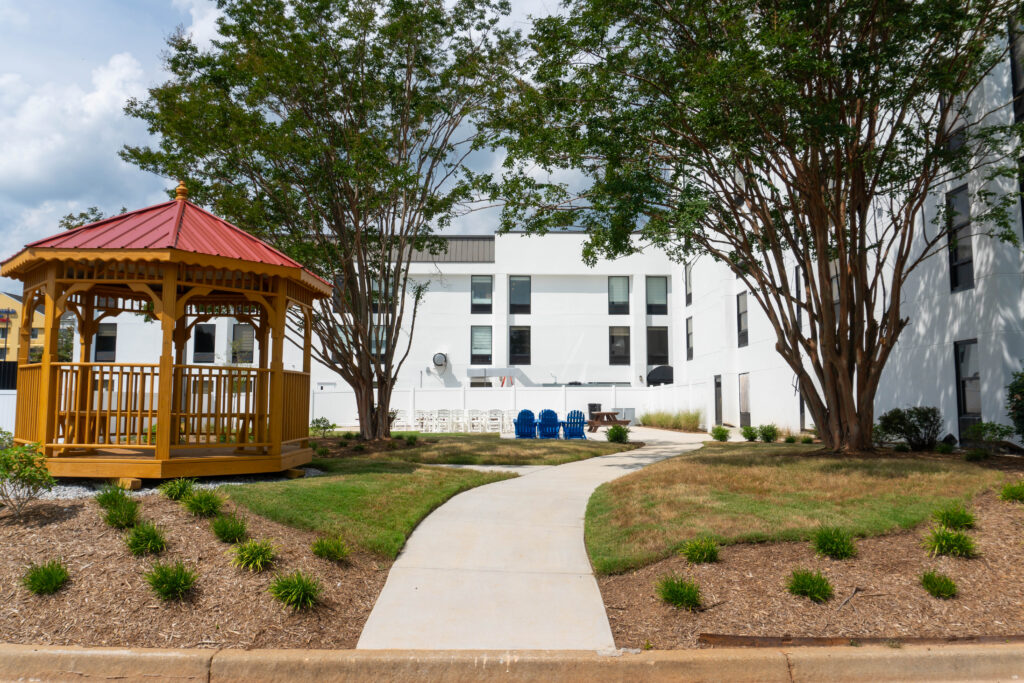
State-of-the-Art Facilities
Our Greenville treatment facilities offer purposefully designed environments that facilitate healing:
- Comfortable accommodation: Well-maintained residential areas that prioritize comfort and dignity with an on-site fitness center, outdoor activities like basketball and cornhole, karaoke, arts and crafts, movie and trivia nights, holiday activities, sports watch parties, and more
- Therapeutic settings: Custom-built areas for group work, individual therapy, and educational
- Wellness Floor: Entire wellness floor dedicated to physical and mental wellness including a basketball court, yoga studio, arts and crafts, and more.
- Clinical resources: On-site clinical facilities to help people detox from drugs or alcohol safely under medical supervision. Provision for ongoing monitoring
The safe setting of RCA complements clinical programming to help people engage fully in the recovery process without external triggers or distractions.
Success Stories and Testimonials
Client testimonials illustrate the effectiveness of the RCA approach to addiction recovery. Everyone experiences substance abuse differently, so we provide individualized and science- backed treatment tailored to personal circumstances.
Explore our website to discover many inspiring stories from our satisfied alums. These accounts are just a small fraction of the 100,000 people we’ve helped initiate recovery as we continue our mission of helping 1 million U.S. adults achieve enduring sobriety.


RCA in the Media
RCA has gained significant recognition for its innovative treatment processes and successful outcomes:
- RCA’s network ranked in Newsweek’s 2025 America’s Best Addiction Centers.
- Coverage in national media highlights our treatment methodologies.
- RCA’s contribution to tackling the ongoing U.S. opioid epidemic has been recognized in various media.
- We have been commended for our outreach programming and community education programs.
Frequently Asked Questions
What Can I Take with Me to Rehab?
If you’re starting an inpatient rehab program at RCA, consider the following:
- Clothing: Bring enough clothing for 10 days, including exercise apparel and sleepwear. There are laundry facilities at RCA.
- Personal care items: Ensure all toiletries are alcohol-free and come in original You can bring electric razors, but not straight razors.
- Medications: Please bring all necessary prescription medications in their labeled containers. These will be evaluated during the admissions process.
- ID and insurance: Pack photo ID, healthcare documentation, and insurance
- Contact information: Bring the contact details of friends and family
Do not bring:
- Perfume or mouthwash that contains
- Unapproved
- Large amounts of
- Valuable
- Cameras or devices with internet
You will receive a comprehensive packing list before starting the admissions process.
How Long Does Rehab Last?
Treatment duration hinges on personal and medical needs, treatment goals, and recommendations from clinical staff. Timelines are general and vary from person to person:
- Detoxification: From five to 10 days, depending on withdrawal severity and the
- Inpatient rehab: Between seven and 21 days, with longer durations possible, based on clinical necessity and insurance
- PHP: From two to four weeks, with therapy sessions five days each
- IOP: Generally, six to eight weeks, with three to five weekly therapy
Our patients work with addiction specialists and medical professionals to determine the optimal treatment lengths for your circumstances and recovery goals. Plans can be tweaked as needed throughout the process and are individualized based on clinical and medical needs.
What Is Inpatient Rehab?
Inpatient rehab is immersive residential treatment for drug or alcohol addiction, which includes:
- Structured and complete care
- Initial evaluation
- Live-in, 24-hour clinical and emotional supervision
- Holistic practices and evidence-based therapies
- Supportive setting with no triggers or distractions
- Peer support
Is Greenville a Good Option for Addiction Treatment?
Greenville drug and alcohol rehab centers deliver many benefits for those who need addiction treatment:
- Many different treatment
- Effective healthcare
- Supportive recovery
- Expert medical professionals and addiction
These aspects make Greenville a prime location for the treatment of any type of substance use disorder.
Where to Go for Addiction Treatment?
If you need help addressing addiction, consider the following resources:
- Physicians: Your doctor can provide referrals or They may also initiate MAT (medication-assisted treatment).
- ER departments: ERs can help tackle acute medical emergencies and connect people with the right resources to pursue their
- Greenville addiction helpline: Call the South Carolina addiction hotline at 866-210- 1303
- Health insurers: Contact your insurer to learn more about in-network providers offering insurance-backed treatment.
- Direct admissions: Many rehab centers, including Recovery Centers of America, have 24/7 admission
- Community organizations: Greenville support groups can help you find the right treatment
There is no single path to addiction recovery. The right level of care is contingent on personal circumstances, the severity of the addiction, the type of substance, the intensity of withdrawal symptoms, co-occurring mental health disorders, and insurance coverage.
Does Insurance Cover the Cost of Treatment in Greenville?
Greenville has laws that require health insurers to offer addiction treatment, although the benefits vary by plan and insurer. South Carolina Medicaid provides therapy for all types of addictions across the complete continuum of care for those who are eligible. Medicare coverage extends to inpatient and outpatient treatment, with deductibles and co-pays.
Insurance obtained via the South Carolina Health Insurance Marketplace must include addiction treatment as a core health benefit.
Recovery Centers of America is happy to work with most health insurance carriers and offers verification services to help people understand their insurance coverage before engaging in treatment. Speak with one of our financial counselors to learn more about out-of-pocket costs, payment options, and assistance programs for Greenville residents looking to begin the recovery process at RCA.
Taking the First Step Toward Recovery
At Recovery Centers of America at Greenville, we’re a community dedicated to helping people reclaim their lives. Our inpatient and outpatient addiction treatment programs offer a safe space to recover, and rebuild.
Wherever you are in your recovery journey, we are ready to meet you with quality care and the respect your deserve. Contact Recovery Centers of America today.

Sources
[1] ASAM – About the ASAM criteria
[2] NIH – Overview, essential concepts, and definitions in detoxification
[3] Pubmed – Virtual Behavioral Health Treatment Satisfaction and Outcomes Across Time
[4] ScienceDirect – A systematic review and meta-analysis of the efficacy of the long-termtreatment and support of substance use disorders
[5] South Carolina DAODAS –South Carolina County Profile
[6] NIH – Cognitive behavioral therapy for substance use disorders